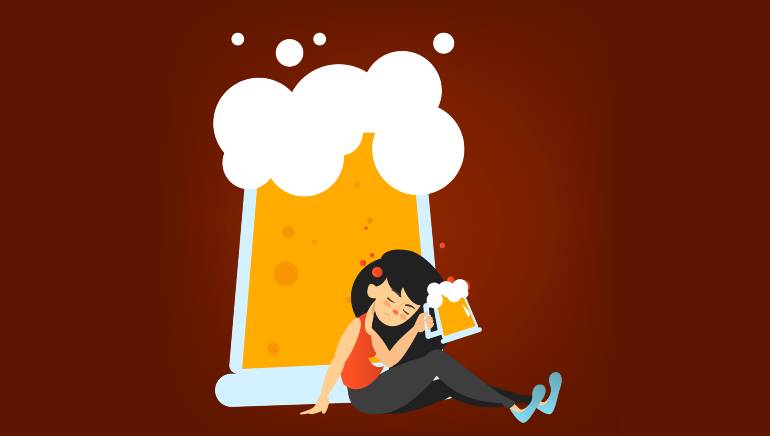
Binging on anything is not a good idea—whether it’s food, TV shows, or booze. Binging can have adverse effects on your body and mind, especially if the thing you’re going overboard with is alcohol.
A new study from the University of Sussex, published in Neuroimage: Clinical Journal, shows that people who binge-drink show more extensive dysfunction across their brains than previously realised. The research also shows that binge-drinkers’ brains have to put more effort into trying to feel empathy for other people in pain.
About 71 participants were involved in the study from France and the UK. Their brain activity was observed in fMRI scanners while undertaking a pain perception task. Half of these people were classified as binge-drinkers and half were not. However, during the observation, the binge drinkers were sober.
Also, read: Here’s why women need to be vary of drunkorexia, a damaging binge drinking disorder
The study showed an image of a limb to see the empathic reaction of the participants
In the task, participants were shown an image of a limb being injured and asked to imagine either that the body part was theirs, or that of another person, and to state how much pain was associated with the image.
The binge-drinking participants struggled more than their non-binge-drinking counterparts when trying to adopt the perspective of another person experiencing the pain. They also took more time to respond and the scans revealed that their brains had to work harder.

When the binge-drinkers were asked to imagine the injured body part in the picture as their own, their pain estimate was not different from that of their non-binge drinking counterparts.
“I have been studying the effects of drinking excessive alcohol for many years. In that time I have built up a strong body of evidence about the widespread way in which binge-drinking is associated with brain dysfunction in areas supporting self-control and attention. Our aim with the present study was to examine whether binge drinkers show less empathy and their brains show different responses to non-binge drinkers when they imagine another person in pain,” said Professor Theodora Duka from the School of Psychology at the University of Sussex.
“Reduced empathy in binge drinkers may facilitate drinking as it can blunt the perception of the suffering of self or others during a drinking session,” says Duka. “A region of the brain called the Fusiform Body Area associated with the recognition of body parts showed hyperactivity in binge-drinkers in a situation in which feelings of empathy are experienced.”
The results were…
“Our results are quite surprising. The data shows that binge-drinkers need to work harder to feel empathy for other people in pain. What this means in everyday life is that people who binge drink might struggle to perceive the pain of others as easily as non binge drinkers do,” Dr Charlotte Rae from the School of Psychology at the University of Sussex said.
Select Topics of your interest and let us customize your feed.
PERSONALISE NOW“It’s not that binge drinkers feel less empathy but it’s just that they have to put more brain resources into being able to do so,” concluded Rae.